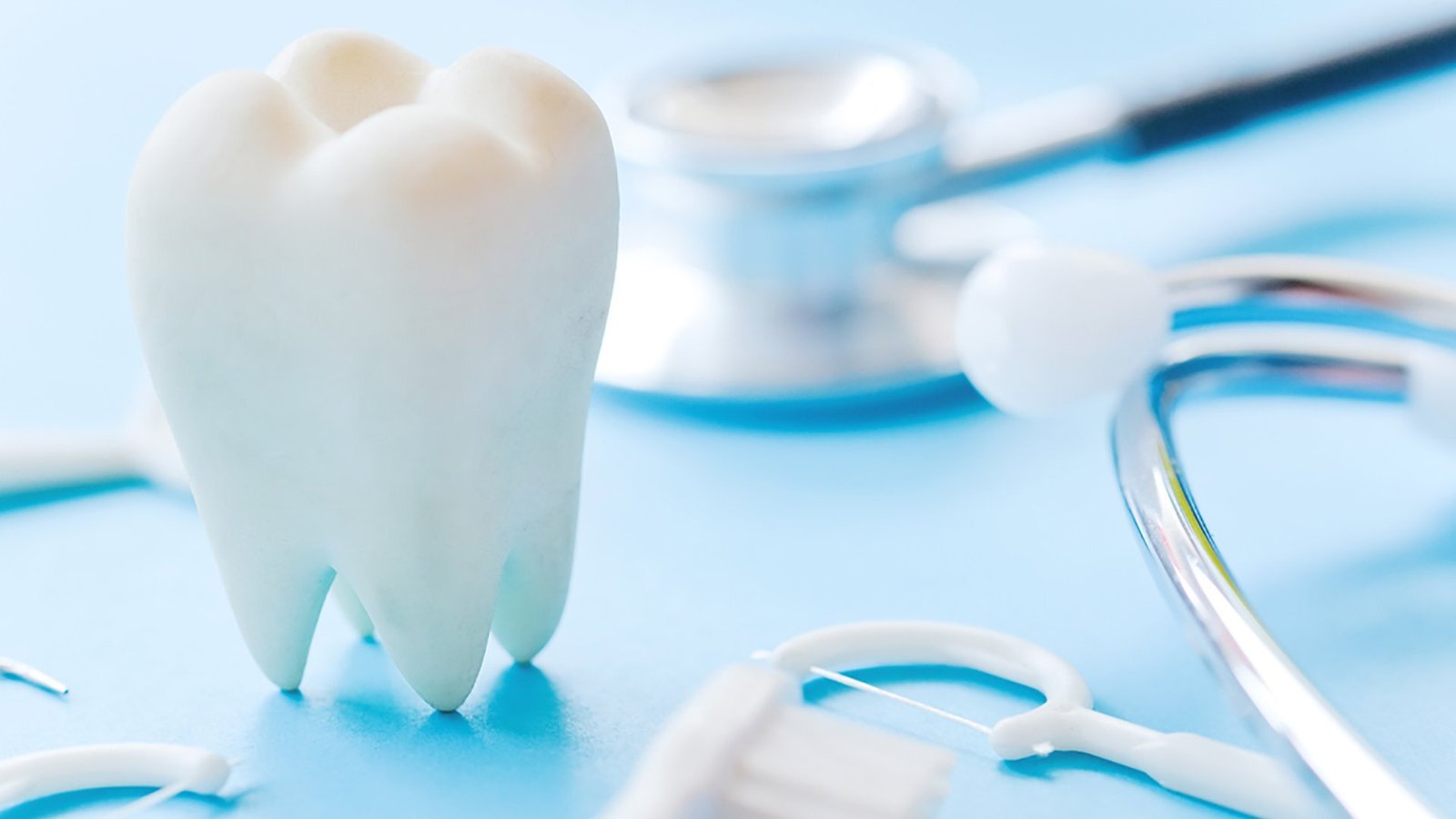You may have been involved in an accident or an incident that made you lose your teeth. There is no need to worry because prosthodontic treatment is the way to go, but there is a catch. Different dental denture types will be recommended to you based on your condition, and all of them have certain prerequisites that need to be fulfilled before being placed in your mouth.
In this article, we will be discussing all seven different dental denture types that will be used for prosthodontic treatment, and we will be taking a deep dive into each one of them.
What are Dental Dentures?
Dental dentures are custom-made, removable appliances designed to replace missing teeth and restore the function and appearance of your smile. They are typically used when natural teeth are lost due to aging, decay, injury, or other oral health conditions.
They are pretty significant because all dental denture types help maintain the shape of the face and prevent the teeth from shifting. All dental denture types are made from a variety of materials, which include acrylic resin, porcelain, and polycarbonate.
The 7 Different Dental Denture Types Used For Treatment
There are seven different dental denture types that are available during prosthodontic Dental Treatments, and each of them acts as a unique dental denture type specially made for patients with a specific set of problems. Here, we will be exploring each and every type of dentures and its cost.
#1 Complete Dentures

Overview: This variant of the dental denture types is used for replacement of all teeth and is used for older/geriatric patients or individuals who have lost all of their teeth in both the upper and lower arches.
Key Features: It resembles exactly like the natural teeth, and it rests on your gums and jawbones, mimicking the natural functions of the mouth when it has teeth.
Advantages: It improves the patient’s quality of life and completely restores the ability to chew and speak for the patient, which is essential for the day-to-day function of life. It can also boost your confidence and improve your appearance.
Disadvantages: This variant of the dental denture type requires high patient compliance and may take some time to get used to the workings of the denture. It also requires high maintenance and need to be adjusted over time.
Cost: It typically costs from $600 to $1000.
#2 Partial Dentures
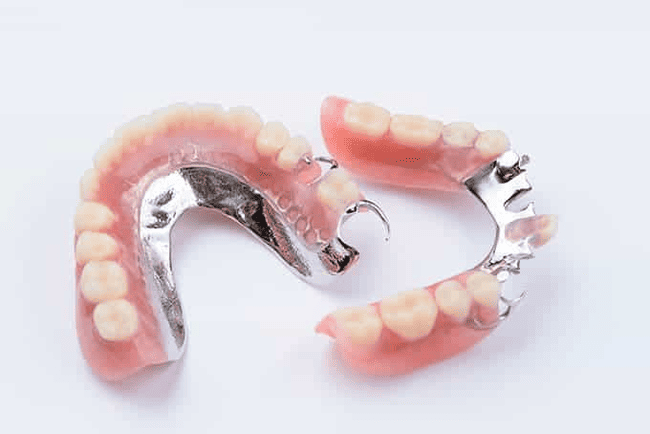
Overview: If you only have one or a few teeth missing from the mouth, then this dental denture types would help you in restoring your function, and it is easily adjusted to the patient’s mouth.
Key Features: Partial dental denture types allow you to keep the existing teeth, which are mostly used as anchors. Depending on your needs and preferences, they can be either removable or fixed.
Advantages: Like the Complete Dental Denture Types, both the removable and fixed partial dental denture types restore the normal functions of the mouth and improve the person’s confidence.
Disadvantages: It requires very high patient compliance in the case of removable partial dental denture types, but it can be quite expensive in terms of fixed partial dental denture types.
Cost: Removable costs around $300 to $700 but fixed may go as far as $1000 to $3000.
#3 Immediate Dentures
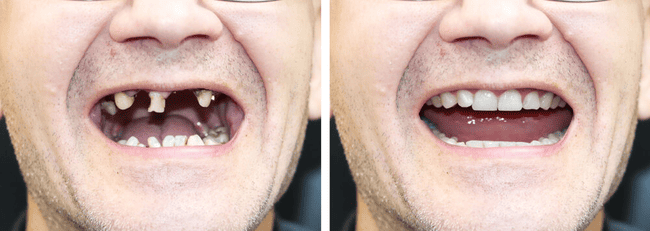
Overview: The immediate dental denture types are much different from the above two, which we have discussed because this denture is inserted almost immediately after extraction in the case of periodontal issues.
Key Features: The main feature of this variant of the dental denture types is that it is placed immediately after extraction, whether it is partial or complete.
Advantages: The healing process of the gums is entirely skipped and the normal function of the patient is restored almost immediately!
Disadvantages: Since the healing process still goes on and the gums might shrink, it may not fit as well and need to be relined.
Cost: It can cost about $1000 to $3500 per arch.
#4 Snap-In Dentures
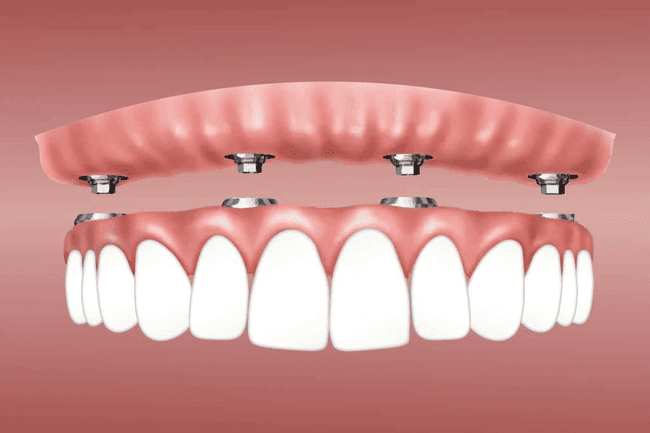
Overview: The Snap-In Dental Denture Types are also known as Implant-Supported Dentures, and as the name indicates, they attach to the implants embedded in your jawbone.
Key Features: Implants are used for this type of denture, and whether it is partial or complete, the gum-colored base of the denture makes a snapping sound when connected to the implant.
Advantages: Snap-in dental denture types are more stable and secure than traditional dentures, which can help you chew and speak more comfortably. They also look and feel more like natural teeth, which can improve your confidence and self-esteem. They can also be removed for cleaning as well!
Disadvantages: They are quite expensive and require more dental work compared to the other dental denture types.
Cost: They can go from $6000 to $10,000 per arch primarily due to the implants installed as well as the healing process and denture quality made.
#5 Overdentures
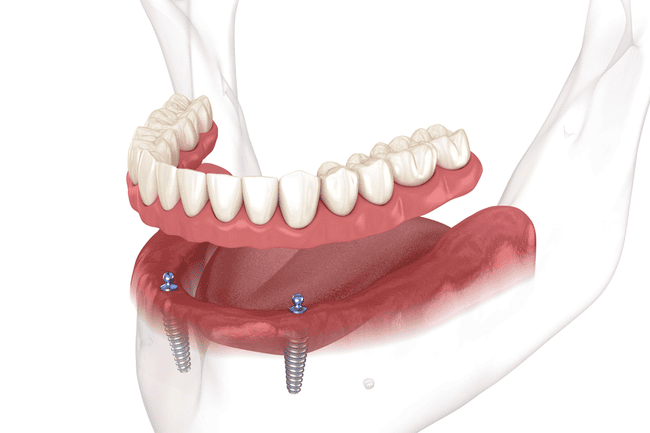
Overview: The overdentures may seem familiar to the Snap-In Dental Denture Types, but they are in fact, quite different as they have a different working mechanism.
Key Features: Implant screws are added to the jaw, and depending on whether your dental denture types is removable or partial, it snaps in and cannot be dislodged easily.
Advantages: The patient can eat his/her food more easily and will not have to worry about denture dislodgement.
Disadvantages: Extensive durations of the dental procedures is expected along with greater costs.
Cost: They can cost from $9000 to $50,000.
#6 Economy Dentures
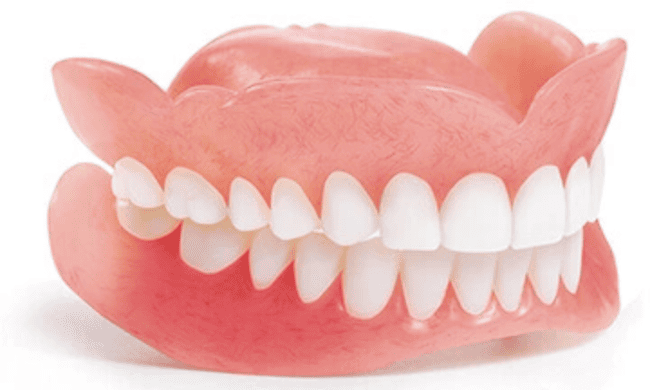
Overview: This is a more stock dental denture types with a fixed size to fit in the mouth and is suitable for patients who are looking to save up some money.
Key Features: This is of universal size and is more cheaper than the rest of the alternatives provided on the list.
Advantages: As explained, the only advantage for this denture is it’s cost.
Disadvantages: They are not comfortable, aesthetically pleasing, or even durable compared to the other dentures and may look fake. Since they are prone to breaking easily, replacements are often needed.
Cost: It costs from $100 to $300 per arch.
#7 Custom Dentures
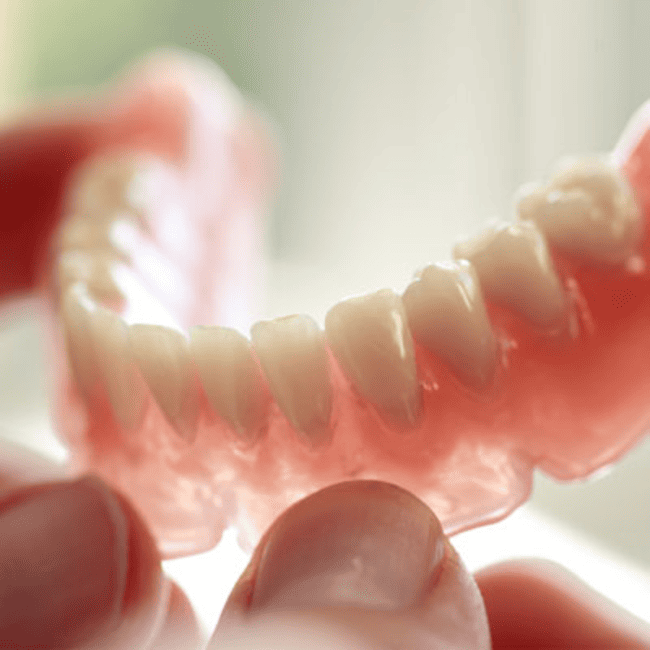
Overview: Since every jaw of the person can be different, just like the fingers, some patients require custom dentures, also known as personalized dentures.
Key Features: Made from the same material as the rest of the dental denture types, it resembles closely to the natural teeth while maintaining the unique shape of the patient for easy fitting.
Advantages: It enhances the person’s confidence and increases the functionality of the mouth as well. The custom fit ensures that the denture does not slip while eating.
Disadvantages: No particular disadvantages other than the fact that a high patient compliance is required.
Cost: It cost around from $500 to $12000 per arch.
How to Choose the Best Dental Denture Types For The Patient?
When picking the right type of dentures, several factors must be considered, as the dentist will work with you to determine the best option based on your individual needs and oral health status.
If you have a couple of missing teeth, partial dental denture types are a good option. Complete dental denture types may be necessary if all your teeth are missing. If you want a more stable and secure option, implant-supported dentures or overdentures may be the right choice.
You also have to consider budget, as some types of dentures may be more expensive than others.
At the end of the day, the best dental denture types for you will depend on your individual needs and preferences. Your dentist can help guide you through decision-making and recommend the best options for achieving a healthy, functional, and natural-looking smile.
FAQs
Q1: Can You Clean Different Dental Denture Types With The Same Method?
Answer: If it is removable, then it can be cleaned by running it under tap water and cleaning it with a soft-bristled toothbrush. If it is fixed, then you can clean it by rinsing your mouth or using a water flosser.
Q2: Are Implants Part of the Dental Denture Types?
Answer: Yes, if Snap-In Dentures are being inserted, then Implants are definitely considered as part of the dentures, otherwise not.
Q3: Is The Process For Getting Dental Dentures The Same?
Answer: Initially, yes. An impression is taken of your mouth, which helps the denture get made, after which, depending on the dental denture types that the dentist has recommended, a denture will be made for you.
Conclusion
Now that we have reached the end of the article, I hope you have understood the different dental denture types that are available for replacing missing teeth!
Keep on visiting Aidite’s website for more information on how to get the best intraoral scanners as well as additional dental tips that will help you run your clinical practice in a smooth and more efficient manner! Do be sure to check out our line of dental solution products!



